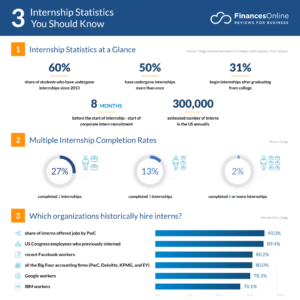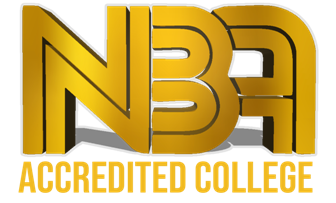Index
- Introduction
- Know Where to Look For
- Internship Dos and Don’ts for College Students: Quick Review
- It starts with Your Qualifications: What are you studying & where do you seek to structure your career?
- How to do an internship successfully?
Doing internships while studying engineering can be a great way to gain practical knowledge about what you are looking for. While internships supplement and enhance academic learning, classroom instruction offers fundamental principles and a theoretical understanding of engineering subjects.
Additionally, internships allow you to acquire, hone, and enhance the essential abilities required for success as an engineer. You can learn how to use industry-standard tools and gadgets, use computer design software for experimental purposes, execute data analysis using CAD, and perform technical analyses through hands-on experience. Employers value these talents and give you a leg up when applying for jobs.
Students often ask, “Can I get an internship in 1st year of engineering” or “Can I get an internship in 2nd year of engineering”. It does not depend on you; it depends on the employer; what are the minimum qualifications the organization is looking for or the skills needed for the internship?
But from a student’s point of view, training can be conducted in 1st or 2nd year or in whichever year the student wants to get an internship.
We’ll now examine how to do an internship successfully. Follow the advice and information in this guide. You will have the ability to make the most of your internship possibilities and set yourself apart as a valued asset in the engineering industry.
Know Where to Look For to Get an Internship :
- Explore job sites like Glassdoor, Indeed, and LinkedIn to get an internship.
- Utilize your college’s career resources and attend career fairs.
- Leverage your network for personal recommendations and referrals.
- Contact companies directly to inquire about internship opportunities.
- Research industry-specific websites for specialized internship listings.
- Follow companies on social media and check their websites for postings.
- Engage with professional associations related to your field.
- Network at industry events and workshops.
- Consider non-profit organizations for internship opportunities.
- Seek guidance from your college’s career services office.

Internship Dos and Don’ts for College Students: Quick Review
Do:
- Research career fields related to your degree and target relevant internships.
- Consider your previous work experience and align it with suitable internship roles.
- Identify and highlight transferable skills in your applications.
- Explore internships in fields that genuinely interest you.
- Start with smaller opportunities to gain experience and enhance your resume.
Don’t:
- Apply to every position without considering your qualifications.
- Disregard the relevance of your degree and experience.
- Overlook transferable skills that can be valuable in different roles.
- Neglect your interests when searching for internships.
- Feel pressured to secure your dream internship immediately if you lack prior experience.
It starts with Your Qualifications: What are you studying & where do you seek to structure your career?
- Reflect on your degree: Research typical career paths and job titles related to your major to help narrow down suitable internship opportunities.
- Evaluate your experience: Take stock of your previous work experience and identify roles that align with your skills. For instance, if you have worked for a campus newspaper, you might consider pursuing a journalism internship, while experience in tutoring statistics could lead you toward data science internships.
- Identify transferable skills: Take note of the skills you have acquired through your education and extracurricular activities. Skills such as organization, critical thinking, and time management are valuable in various professional settings. Research internships that require these skills and emphasize them in your applications.
- Explore your interests: Compile a list of career fields that genuinely interest you and search for internships within those areas. Finding an internship aligned with your passions can enhance your overall experience.
- Start with smaller opportunities: Don’t feel pressured to secure your ideal internship right away, especially if you have limited prior work experience. Begin by exploring internships with local organizations, school-affiliated groups, or volunteer work. These experiences can bolster your resume and provide valuable skills for future internships.
How to do an internship successfully?
Be a learner in an internship.
The internship can be paid or unpaid, and you will work from home or in an office, far or near. These are the factors involved while applying for an internship, but above all these factors lies one which is the most important.
Getting an internship is the learning element; how much and what will you learn? Will that internship add skills and responsibilities to your resume or not? Learn and take the most out of your training, work additional, take more responsibilities, and show interest in other than your primary roles. While conducting an internship, this mindset will enable you to gain much more than just a stipend and a certificate.
Networking
It helps. Trust the advice; it allows you to connect well with your peers, not just at work but with their ideologies and thoughts. It would help if you took advantage of this chance to network with company employees. You can interact with co-workers, attend business events, and ask seasoned engineers for assistance.
Networking enables you to gain guidance, support, and valuable advice as you navigate your engineering career. You will be exposed to many projects, initiatives, and career paths through interactions with professionals within the various departments. Do not try to run away from it; instead, take an active part in it to learn how well-experienced professionals do things.
Know the company organization you’ll be interning with
Have a clear idea of the organization you’ll be interning with. Try to gain insight into their mission, values, projects, and recent developments. You can also align your objectives with the company’s, which is an excellent way of better integrating yourself into corporate culture. Start by looking over the company’s website. Look for sections like “About Us” or “Our Values.”
These reports define the company’s goal, vision, and guiding principles. Indicate the company’s primary endeavor, item, or service. You will understand the engineering difficulties they encounter and how they affect business or society in this way.
To begin a conversation with your colleagues, use your research. Look at their work and ask them what they think about the company’s projects, or get advice on how to succeed in your internship.
Take responsibilities
Managers usually give fewer responsibilities to an intern than a working professional in the company. But it is your responsibility to take more responsibilities. Doing this will provide you with the in and out of how the company operates, the level of the hierarchy, and how managers and leaders think and work.
You will encounter new challenges and tasks outside of your original internship role due to assuming extra responsibilities. It is an opportunity to develop and refine a broader range of skills, e.g., to solve problems, take decisions, manage projects, or act as a leader.
Stepping into more responsibility demonstrates your initiative, proactive attitude, and ability to cope with the increase in workload. That indicates that you are willing to go beyond what is expected of you as an intern. Ultimately It proves your capability.
Be self-reliant
Being self-reliant means owning your work and being accountable for your tasks and assignments. When you complete your work or studies, ensure you are providing error-free work. Especially in engineering internships, there is a lot of scope for committing mistakes because there are a lot of requirements of paying attention to details and technical information, so the intern has to be extra careful already. Your superior should refrain from educating you about your mistakes and their solutions. It should be you to spot and rectify it.
You must be careful to identify errors or areas of improvement and deal with them yourself. Doing this will leave an impression in the manager’s eye for you. It proves you are serious about delivering excellent work and saving time for your supervisor by not having to remind him of every mistake.
Pay attention to all of the resources at your disposal.
There are numerous techniques and technologies used in engineering that facilitate task completion and boost productivity. Learn about the tools that are necessary for the duties that have been assigned to you and your discipline. All the equipment, software, measurement devices, and design tools that you might utilize in your particular sector are available tools and resources.
It would help if you tried to comprehend the tools utilized in every aspect of your discipline. If you don’t hesitate, you can learn a new device. While you might not immediately recognize a tool’s value during your internship, understanding its capabilities and potential can lead to answers.
Do not hesitate to ask questions.
When you work as an intern, everybody around you is ready to help you and teach you about wherever you face difficulties. When facing an issue, it is appropriate to separate small portions from more extensive components and ask precise questions to determine the cause or test potential remedies. This analytical approach suggests that you might be able to think critically about and resolve issues.
Look for feedback from your work and ask concrete questions about areas where improvements can be made or suggestions on improving performance. This indicates your commitment to learning and development, allowing you to make fundamental changes that will enable you to succeed or fail in meeting expectations.
While questions must be asked, it is also important to pursue research and find the answers from an independent point of view.
Manage time while doing an internship.
Time management is crucial to succeeding in an engineering internship. Effective time management enables you to complete activities quickly, meet deadlines, alleviate stress, and maintain the efficiency of your work.
Determine the duties you have been given and rank them according to significance and urgency. Consider categorizing your tasks into High, Medium, and Low Priority groups.
Create a daily or weekly calendar to allot specific time intervals for the various jobs and activities. We advise utilizing a planner, calendar, or digital tool to organize your schedule and ensure you keep your obligations.
Avoid procrastination
Procrastinating can be detrimental to your productivity and lead to a lot of stress. Keep an eye out for your tendency to delay and develop strategies to overcome them. To maintain focus, break your task into smaller, more manageable steps, use time-blocking techniques, and eliminate distractions.
You can minimize distractions during working hours. You can turn off notifications on your phone, close unnecessary tabs on your computer, and create a dedicated workspace without interruptions.

Summary
To complete an engineering internship successfully, several key tactics must be used. It would help if you concentrated on learning as much as possible by taking on more duties and showing an interest in various elements of the firm to grow and gain from the internship. Networking is crucial to get the knowledge, assistance, and priceless counsel of seasoned experts.
Accomplishing more tasks than required has demonstrated initiative and given details on how the business runs. You can tell you’re responsible and professional if you can rely on yourself and produce error-free work. Use the materials and tools offered to improve your knowledge of this field and your effectiveness.
Asking questions is advised during your internship. Utilize the chance to provide comments, solicit feedback, and deal proactively with problems that might be improved. Last, but not least, it is crucial to have efficient time management skills to complete activities, meet deadlines, and minimize stress while retaining efficiency. Set priorities for your job, make a schedule, and stay away from distractions if you want to be able to spend your time effectively.
By using these tactics, you can take advantage of your engineering to get an internship and get practical knowledge and experience while also promoting yourself as a priceless resource for the sector.


